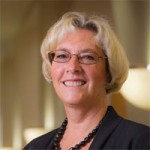This article is more than 5 years old.
The Spring meeting of the Association of Southeastern Research Libraries was held in Charleston, SC April 11-12. Charleston is a favorite location for ASERL because it is easily accessible, beautiful, and has terrific food! Wednesday morning, I attended my first Executive Board meeting, as about-to-be-elected incoming President-Elect. I look forward to working with this forward-thinking Board in the three years of my term. The meeting itself started in the afternoon with the annual business meeting, which included the election. Since there is a single slate of candidates, the outcome was not a surprise!
The first presentation was by Karin Wittenborg at UVA who described the Digital Preservation Network (DPN) proposal that I previously described in my CNI post. Karin worked closely with UVA’s CIO, James Hilton, in forming this initiative and it was good to hear it described from the library perspective. DPN can be thought of as a huge insurance policy to protect the digital scholarly record. Karin said it was the most important work she has ever done, which says a lot. Next, Martha Sites from UVA described the Academic Preservation Trust, which is an effort by a number of ARL libraries to aggregate and preserve curated digital content. We will follow both of these movements carefully, as they complement the Hathi Trust, which we hope to join this spring. I see it as my job to monitor these kinds of national-level initiatives and identify how we at ZSR can contribute and participate. Each of these programs require an investment of around $20,000 in a pay-to-play situation, so they are commitments to consider carefully. The final presentation on digital preservation initiatives was by Tyler Walters of Virginia Tech. He has been working with the National Digital Stewardship Alliance, run out of the Library of Congress. Its mission is to preserve access to our national digital heritage through a community-based approach. Members include libraries, cultural heritage institutions, and content creators. In contrast to the other two, this organization has no fees, so we joined several months ago when Craig brought it to our attention. Digital preservation is definitely a hot topic in research libraries these days!
The next set of presentations was on the theme “Library as Publisher,” a topic of interest to me in light of our collaboration with Wake Forest’s new digital publishing program. Catherine Murray Rust from Georgia Tech was involved in the IMLS-funded project to study library publishing strategies and activities. Bill Garrison from University of South Florida gave a very practical presentation on their Scholar Commons program, focusing on how to remove institutional barriers and build campus partnerships to support library publishing initiatives. The last presentation on this theme was from Rebecca Kennison from Columbia’s Center for Digital Research and Scholarship, a unit of 15 people embedding themselves into the researcher workflow, with a full suite of services for repositories, conferences, publications, and video.
On Thursday morning, the Apple rep we had on campus several weeks ago gave the same presentation we heard at WFU on iBooks Author. This is an app that is currently limited to iPad but can be exported using PDF or epub. He said clearly that Apple is not in the business of library services, but they definitely see themselves in the content creation business. A number of WFU faculty attended the campus presentation and were interested in using this platform for multi-touch textbooks.
Judy Russel from the University of Florida gave an update on ASERL’s Centers of Excellence project in government documents. This project received the “Documents to the People” award from ALA’s Government Documents Round Table, which is fairly ironic since it has been severely challenged by the Government Printing Office. Under Roz’s leadership, ZSR has chosen one small agency as our means of participation in the Centers of Excellence project.
The last presentation I attended was from Russell Moy from the Southeastern Universities Research Association. SURA and ASERL are collaborating on a research data management initiative. Data management is definitely the next frontier for research libraries and this kind of collaboration is an excellent next step. Future possibilities include joint workshops, pilot projects, and even the dream of a huge joint data center in the Southeast. Molly is on the listserv that tracks data policy changes for this collaborative effort.
I had to leave the meeting a little early in order to get the Charleston Library Society, where I gave a talk on the future of books and libraries to the WFU alumni chapter in Charleston. We had about 15 people who came at noon and we had a delightful time musing together about what the future might bring. I had met an alum from Charleston at the College’s Distinguished Alumni Award event in February. One thing led to another and he invited me to talk to the group the next time I was in Charleston, which turned out to be the ASERL meeting in April. I love that kind of serendipity!

4 Comments on ‘ASERL Spring 2012’
Here is the link for the presentations at this meeting: http://www.aserl.org/meetings/meeting-agendas-and-materials/2012_spring_mtg/
SO interesting to see how some Government agencies (LOC) really get the future and how to present our materials, and others (GPO) so clearly do not.
Thanks for the update – always interesting!!
And congrats, Madam President.
Roz
I especially appreciated the information about digital preservation: the organizations(DPN,APT and NDSA) mentioned and initiatives. I’m excited and interested in future developments in this area of librarianship. Congratulations on your election as President-Elect of the ASERL Executive Board.
Congratulations, Lynn! And thanks for sharing the link. It all sounds so interesting!!